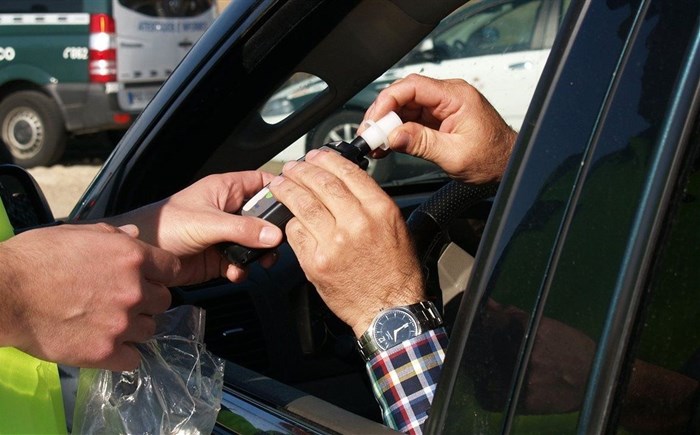Current, progressive thinking about the indispensable need to use alcohol breathalysers for law enforcement has come up with better solutions than "standing on one leg" or "walking on a straight line" as suggested by some leaders of law enforcement in South Africa.
In response to the challenge posed by Covid-19, mining, industry, commerce and law-enforcement authorities have found it essential to continue the use of alcohol breathalysers with appropriate PPE to safeguard breathalyser operators and test drivers and employees. Gloves, masks and especially single-use paper straws are in widespread use, allowing sobriety tests to continue being done using reliable alcohol breathalysers.
Alcohol consumption continues to be concerning in South Africa with lockdown revealing what we had always known about our toxic relationship with alcohol.
As of 2018, almost 1 in 3 people in South Africa from age 15 upwards were recorded as drinkers, 59% of whom were heavy drinkers. During the alcohol sales ban, hospitals received remarkedly less alcohol-related trauma visits. This huge shift in the public burden, at least to health services is one of the reasons why some lobby groups made their calls for zero tolerance of alcohol consumption by drivers, louder.
Coming out of an alcohol ban meant that consumption potentially increased, and entering the festive season means that not only will consumption increase but so will people’s movement. The annual carnage on the road has the potential to be greater this year, given the high levels of stress and anxiety in people this year. And so the importance of accurate screening and testing is even more necessary, both on the road and at workplaces. The idea of using old methods of testing is terrifying at best and will do little to encourage sober driving and working.
Safety solutions
There are various safe breath testing solutions to consider for screening and testing, especially on the roads. For instance, there are certain breathalysers that have a magnetic mounting which enables officers and drivers to be completely separated during testing. Certain mountable units recycle automatically, allowing for repeated sequential tests with no human intervention. This, coupled with surgical gloves and non-alcohol-based sanitiser wipes will ensure the readiness of testing units for the next subject, especially at roadblocks where numerous tests have to be conducted in a short space of time.
Some of the technology available does not even need blowing in order to screen accurately and successfully.
While pre-Covid-19, officers would put their head in the car to smell any potential alcohol consumption, these units can do the exact same job without asking drivers to blow into them. They can be placed within the vicinity of the driver and if there is alcohol in the air around them, the unit will detect this and raise alarm. The next step then will be to do the blood work and do the tests.
It is vitally important for authorities to simply adopt the new methodology and thus help ensure the safety of drivers on the roads. A reversion to the days of old will never provide the public, or the workplace, with the protection that testing with breathalysers technology provides. Walking a line or standing on one leg does not comply with the law and does not enable an accurate determination whether the driver is over the legal limit or not. It introduces further elements of subjectivity that have long-been dispensed with because it is unreliable.
If we are to curb carnage on the road, and save lives, it is imperative that we employ Covid-safe use of alcohol breathalysers that provide scientific certainty.












































